![Top Tenable alternatives and competitors [August 2025] Top Tenable alternatives and competitors [August 2025]](/blog/images/top-tenable-alternatives.webp)
Introduction: Why look for Tenable alternatives?
For more than twenty years, Tenable has been one of the most trusted names in cybersecurity. From Nessus vulnerability scanning to Tenable.io and Tenable Cloud Security, the company offers organizations powerful solutions in vulnerability management, application security, and cloud security posture management (CNAPP).
However, 2025 brings new challenges. Security leaders increasingly seek Tenable alternatives due to:
High licensing costs that do not always scale well for startups or mid-market firms.
Complex deployments in hybrid and multi-cloud environments.
The demand for specialized solutions such as AI-powered DAST, kubernetes-native security, and advanced runtime protection.
The growing importance of DevSecOps integration and developer-friendly workflows.
This blog explores the best Tenable alternatives in 2025, covering application security (DAST), cloud security (CNAPP), and vulnerability management (VM). By examining their strengths, pricing, and customer feedback, you can make more informed decisions about which platform best fits their business needs.
Best Tenable alternatives TL;DR (quick comparison table)
| Software | Starting price | Strengths | Best for |
|---|---|---|---|
| Beagle Security | $119/month | AI-powered DAST, real attack simulations, no false positives, CI/CD integrations | Modern web apps & APIs, DevSecOps teams |
| Burp Suite | $475/year | Industry-standard, manual testing depth, extension ecosystem | Security pros & pen testers |
| Rapid7 InsightAppSec | $175/month per app | Risk-based prioritization, DevOps integrations, automation | Enterprises using Rapid7 ecosystem |
| Wiz | $24,000/year (100 workloads) | Agentless multi-cloud scanning, real-time risk detection | Multi-cloud enterprises |
| Aqua Security | $50,000/year | Kubernetes-native, Trivy-powered, runtime protection | Container-heavy environments |
| SecOps Solution | $5/device/year | Cost-effective, simple deployment, compliance monitoring | SMBs, budget-conscious orgs |
| Rapid7 InsightVM | $1.93/asset/month (500 min) | Live dashboards, risk-based scoring, IT integration | Enterprise vulnerability management |
Best Tenable alternatives [August 2025]
We’ll review Tenable alternatives category by category:
Application security / DAST - Beagle Security, Burp Suite, Rapid7 InsightAppSec
Cloud security / CNAPP - Wiz, Aqua Security
Vulnerability management - SecOps solution, Rapid7 InsightVM
Application Security / DAST (Tenable web app scanning alternatives)
Introduction to Tenable WAS: Pros and limitations
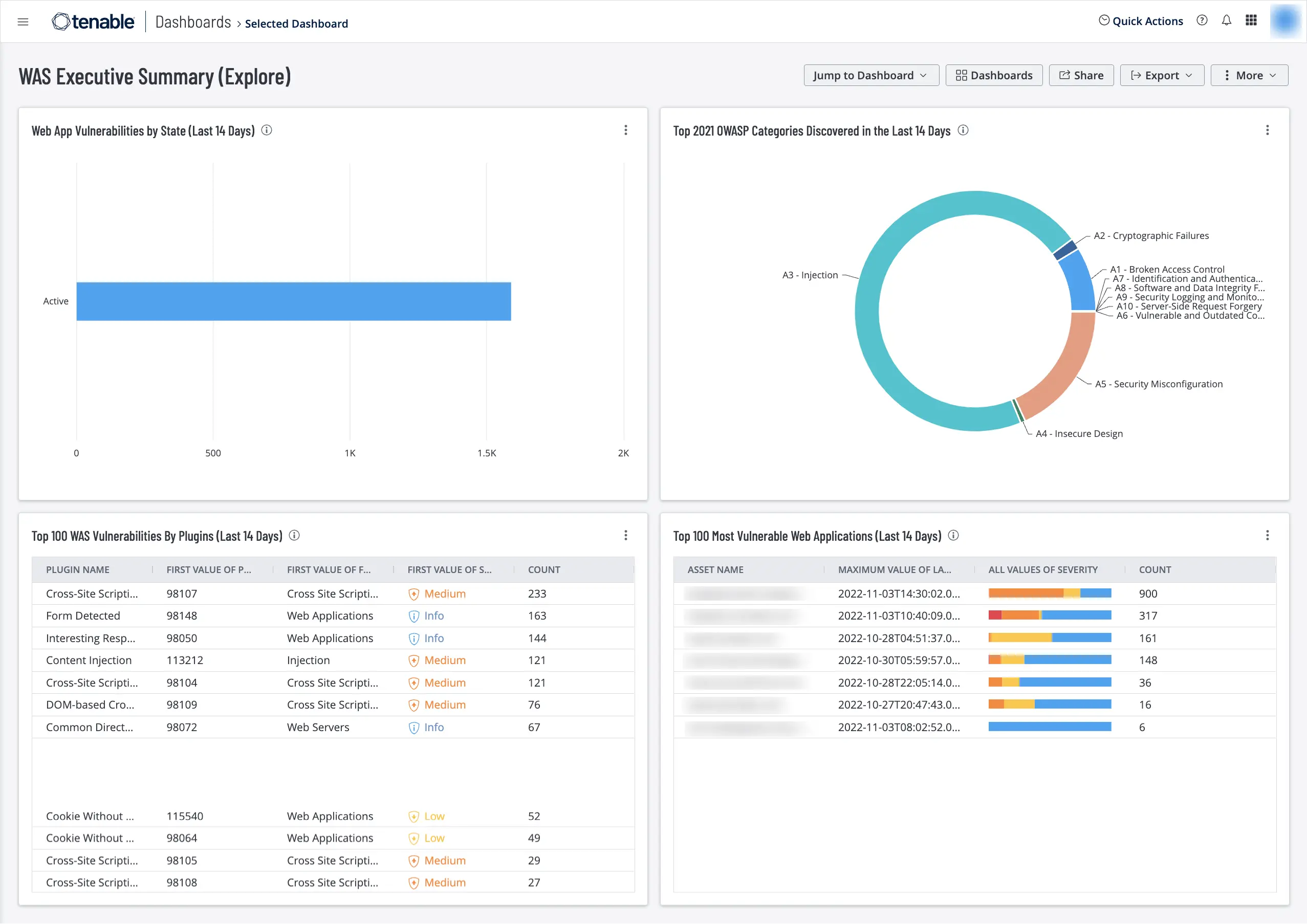
Tenable web app scanning (WAS) is one of the company’s core solutions for application security. It helps detect common web vulnerabilities like SQL injection, cross-site scripting (XSS), cross-site request forgery (CSRF), and other issues from the OWASP Top 10. It also supports authenticated scanning and integrates with the wider Tenable.io ecosystem, making it a reliable choice for many enterprises.
Strengths of Tenable WAS include:
Comprehensive coverage of common vulnerabilities.
Scheduling automation that allows regular testing without manual oversight.
Integration with the broader Nessus ecosystem for unified reporting.
Limitations include:
Pricing is based on fully qualified domain names (FQDNs), which can scale poorly for organizations with many applications.
Complex setup when scanning modern single-page applications (SPAs) or frameworks like React and Angular.
Limited developer-first integrations compared to newer competitors in the DAST space
Beagle Security
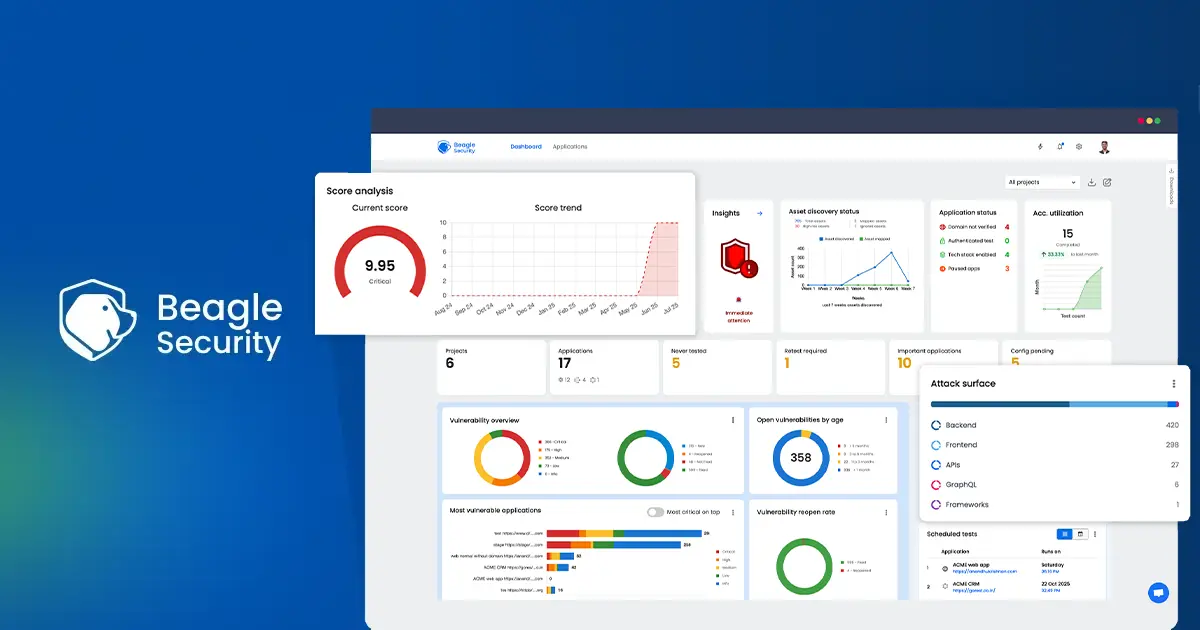
Beagle Security is one of the best Tenable.io alternatives for application security. Unlike Tenable WAS, it takes a developer-first approach by using AI-driven attack simulations that mimic how real-world attackers might exploit vulnerabilities.
One of its standout advantages is its strong support for modern applications, including SPAs and GraphQL APIs. It also offers validated findings, which means organizations spend less time chasing false positives.
Beagle Security key features:
AI-driven dynamic application security testing.
GraphQL, REST, and authentication flow support.
Business logic testing to capture flaws that traditional scanners often miss.
Zero false positive reporting, as vulnerabilities are validated before being surfaced.
Seamless CI/CD pipeline integration, making it highly devsecops-friendly.
Beagle Security pricing:
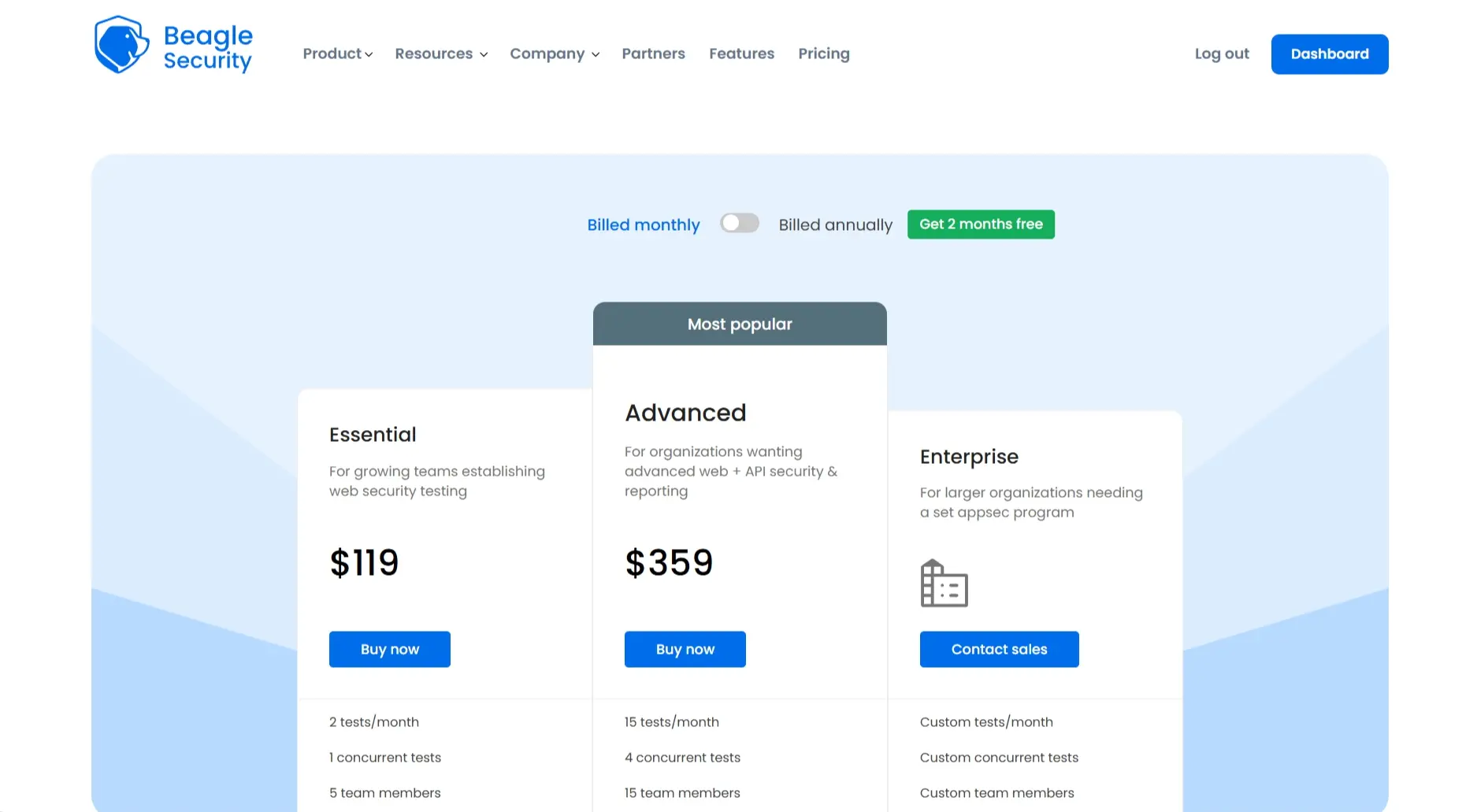
Essential plan: $119/month (2 tests/month).
Advanced plan: $359/month (15 tests/month).
Enterprise plan: starting at $6,850/year with customized options.
Beagle Security ratings & reviews
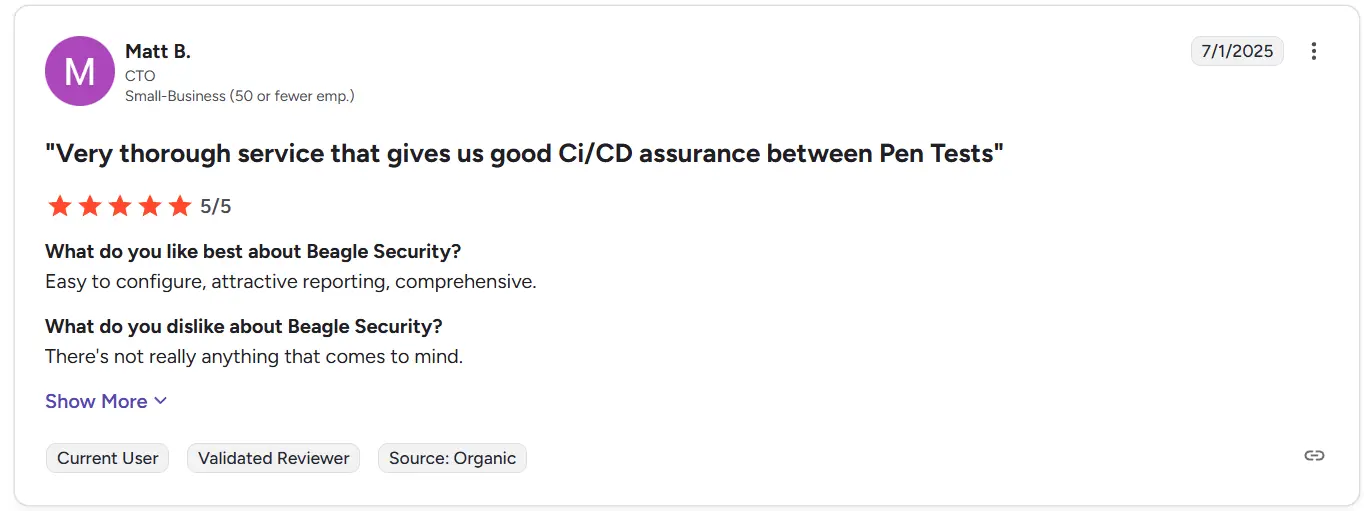
Source: G2
Most users praise Beagle Security for its ease of use, developer-friendly design, and accuracy of results. Compared to Tenable WAS, customers report that the contextual reporting makes it easier for engineering teams to remediate vulnerabilities without slowing down development cycles.
Burp Suite
Burp Suite has long been a go-to toolkit for penetration testers and security researchers. While Tenable WAS focuses primarily on automation, Burp Suite emphasizes manual testing and provides an extensive plugin ecosystem through its BApp store.
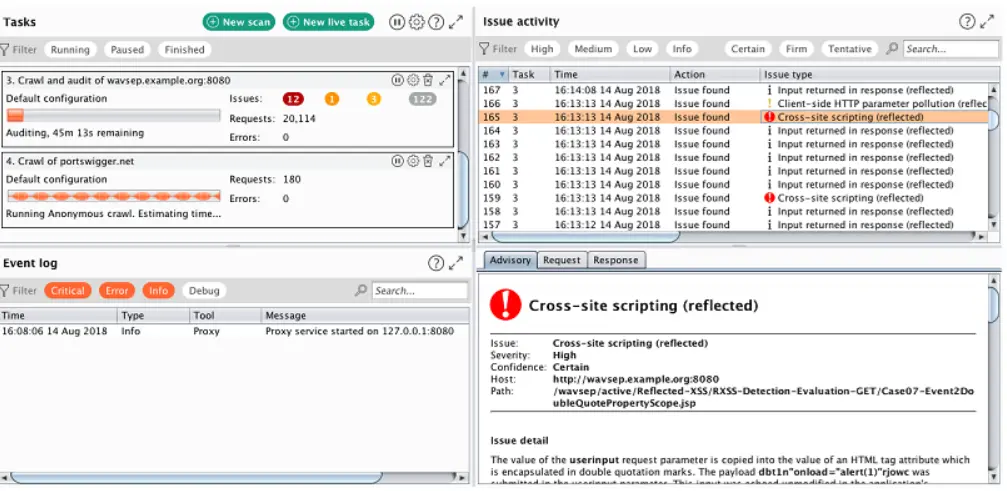
It is especially valued in the security community for its ability to intercept, manipulate, and analyze traffic at a granular level. This makes it an excellent choice for organizations that want hands-on penetration testing alongside automated scans.
Burp Suite key features:
Advanced proxy for intercepting and modifying web traffic.
Automated scanning for common vulnerabilities.
A powerful spider to crawl applications and map out endpoints.
Custom extensions available through the BApp store.
Manual penetration testing capabilities are unmatched by fully automated tools.
Burp Suite pricing:
Professional edition: $475/year per user.
Enterprise edition: custom pricing based on scale.
Burp Suite ratings & reviews
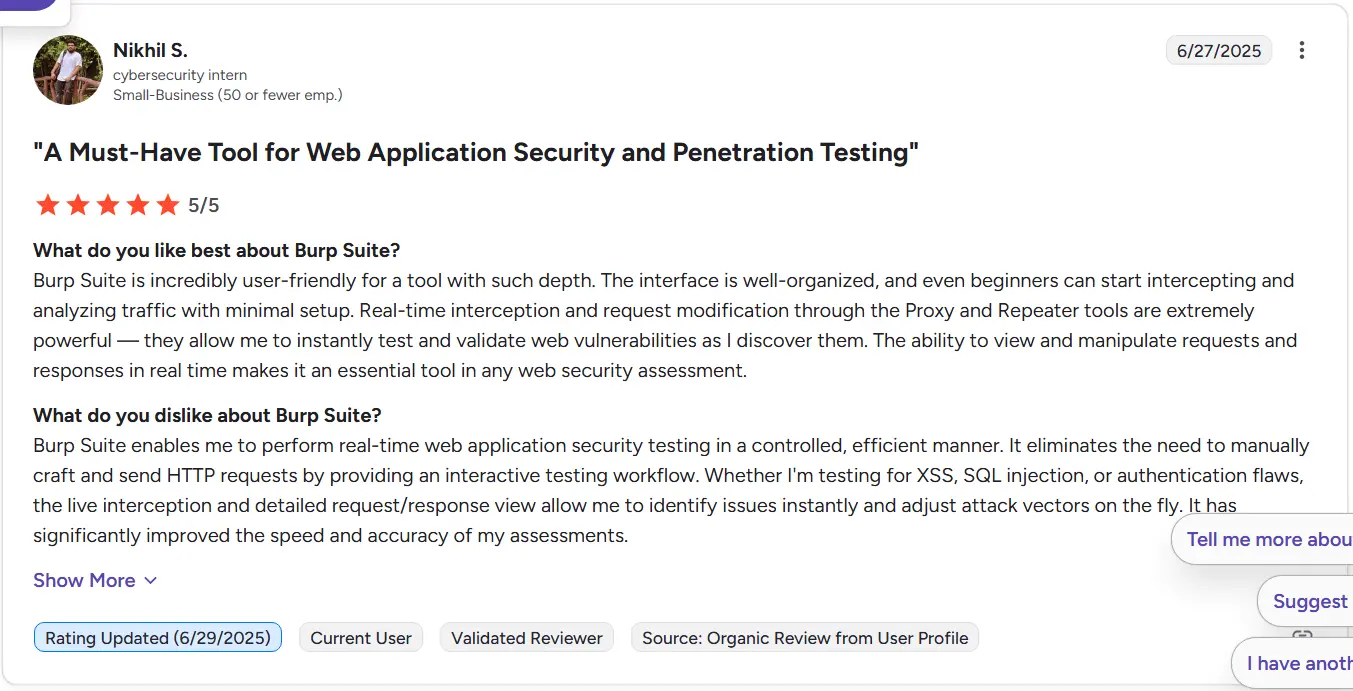
Source: G2
Burp Suite remains one of the most respected tools in the cybersecurity industry. Professionals highlight its flexibility, manual testing depth, and community-driven ecosystem. However, some organizations note that it requires significant expertise, making it less suitable for teams that want fully automated workflows.
Rapid7 InsightAppSec
Rapid7 InsightAppSec is designed to bridge the gap between automated application security scanning and integration with the larger Rapid7 ecosystem. It provides risk-based prioritization and connects well with remediation workflows, which makes it appealing for enterprises already using Rapid7 solutions like InsightVM or InsightIDR.
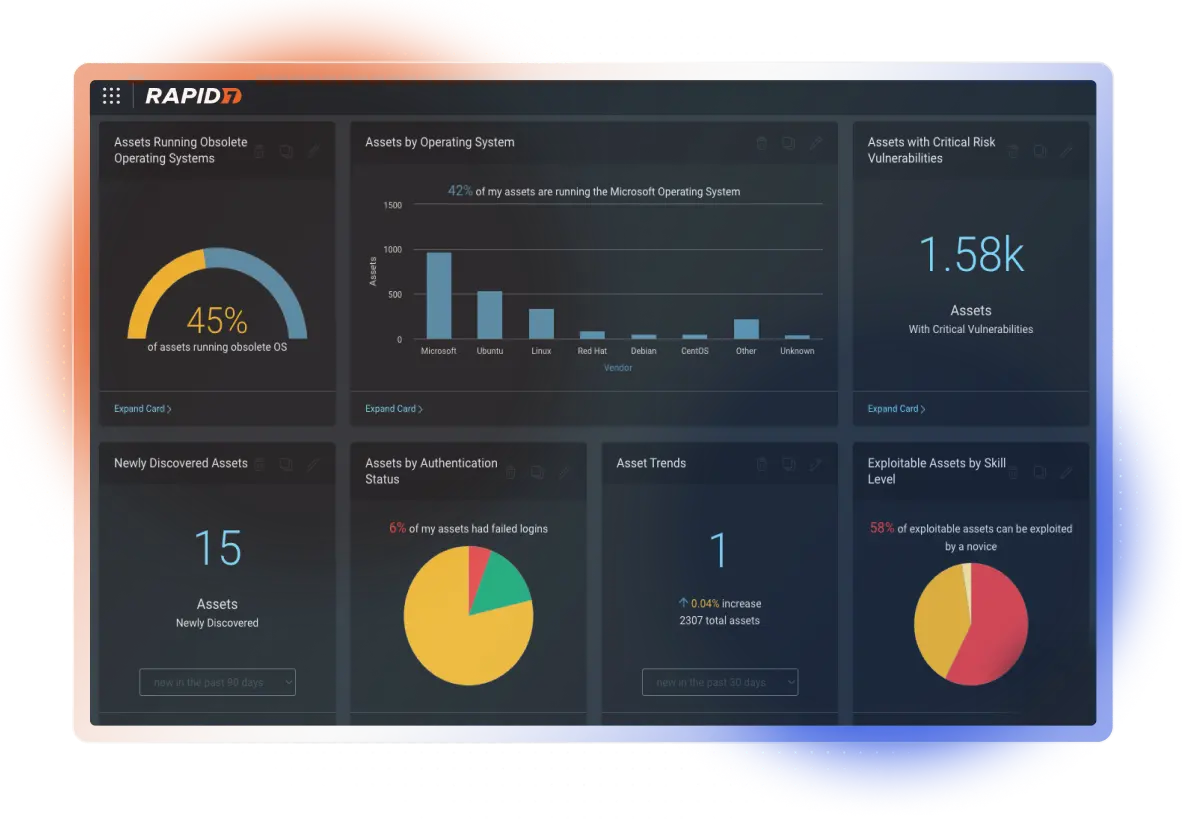
Source: Rapid7
Rapid7 InsightAppSec key features:
Dynamic application security testing with real-time vulnerability intelligence.
Risk-based prioritization to ensure the most critical vulnerabilities are addressed first.
Automated remediation workflows that save engineering time.
Seamless DevOps and CI/CD integrations.
Compliance-ready reporting for industry standards like PCI DSS, HIPAA, and ISO 27001.
Rapid7 InsightAppSec pricing:
Starts at $175/month per application.
Enterprise-level discounts available for large-scale deployments.
Rapid7 InsightAppSec ratings & reviews
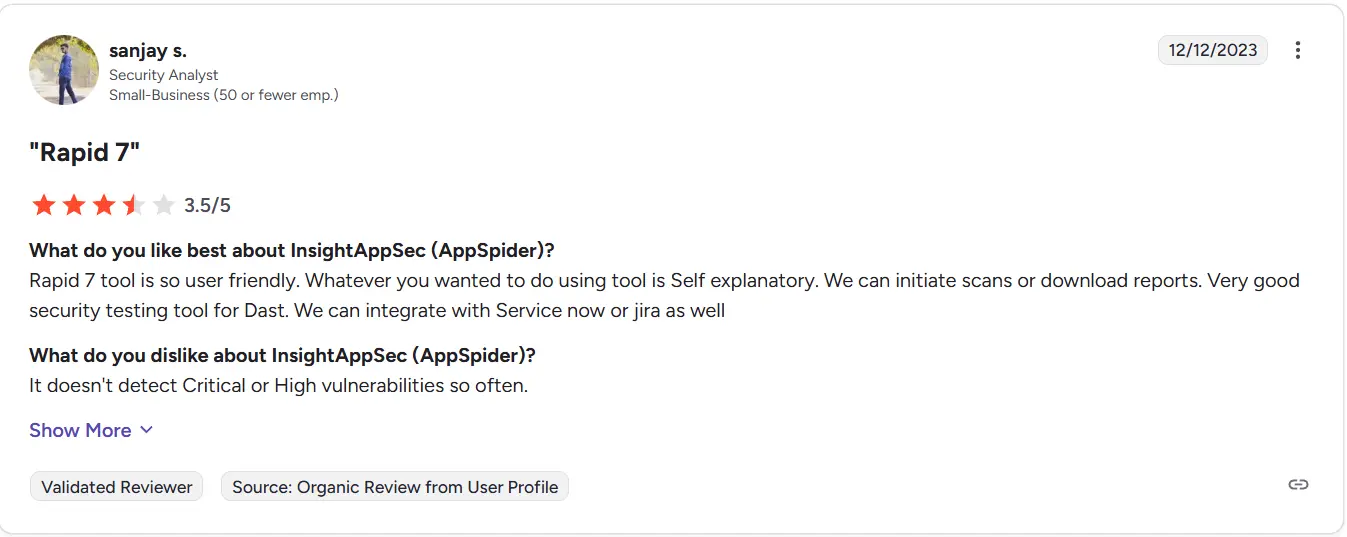
Source: G2
Users appreciate its ability to integrate directly into DevOps pipelines while leveraging the broader Rapid7 security ecosystem. Compared to Tenable WAS, InsightAppSec is often praised for its flexibility in enterprise settings and its risk-based approach to prioritization.
Cloud Security – CNAPP (Tenable Cloud Security Alternatives)
Introduction to Tenable cloud security: Pros and limitations
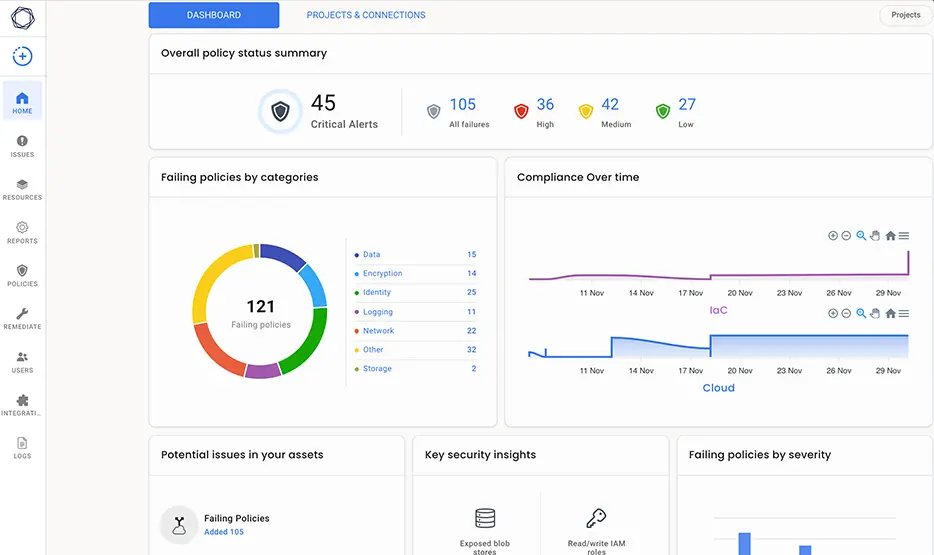
Tenable Cloud Security provides a cloud-native application protection platform (CNAPP) that combines cloud security posture management (CSPM), vulnerability management, and runtime threat detection. It is widely adopted by enterprises that operate across AWS, Azure, and GCP.
Strengths of Tenable Cloud Security include:
Multi-cloud visibility across AWS, Azure, and GCP environments.
Automated compliance reports for frameworks such as PCI DSS, HIPAA, and NIST.
Policy-driven controls that allow security teams to enforce consistent standards.
Limitations of Tenable Cloud Security:
Complex deployments that can make initial rollouts lengthy in large-scale environments.
Less intuitive interface compared to newer players that focus on usability.
Limited kubernetes-native protections, which can be a drawback for container-heavy workloads.
These challenges have opened the door for competitors like wiz and Aqua Security, which emphasize simplicity, Kubernetes support, and faster cloud-native integration.
Wiz
Wiz has become one of the fastest-growing CNAPP providers. Its agentless approach sets it apart from Tenable by making deployment almost instant. Without the need for agents or sensors, wiz provides comprehensive visibility across multi-cloud environments.
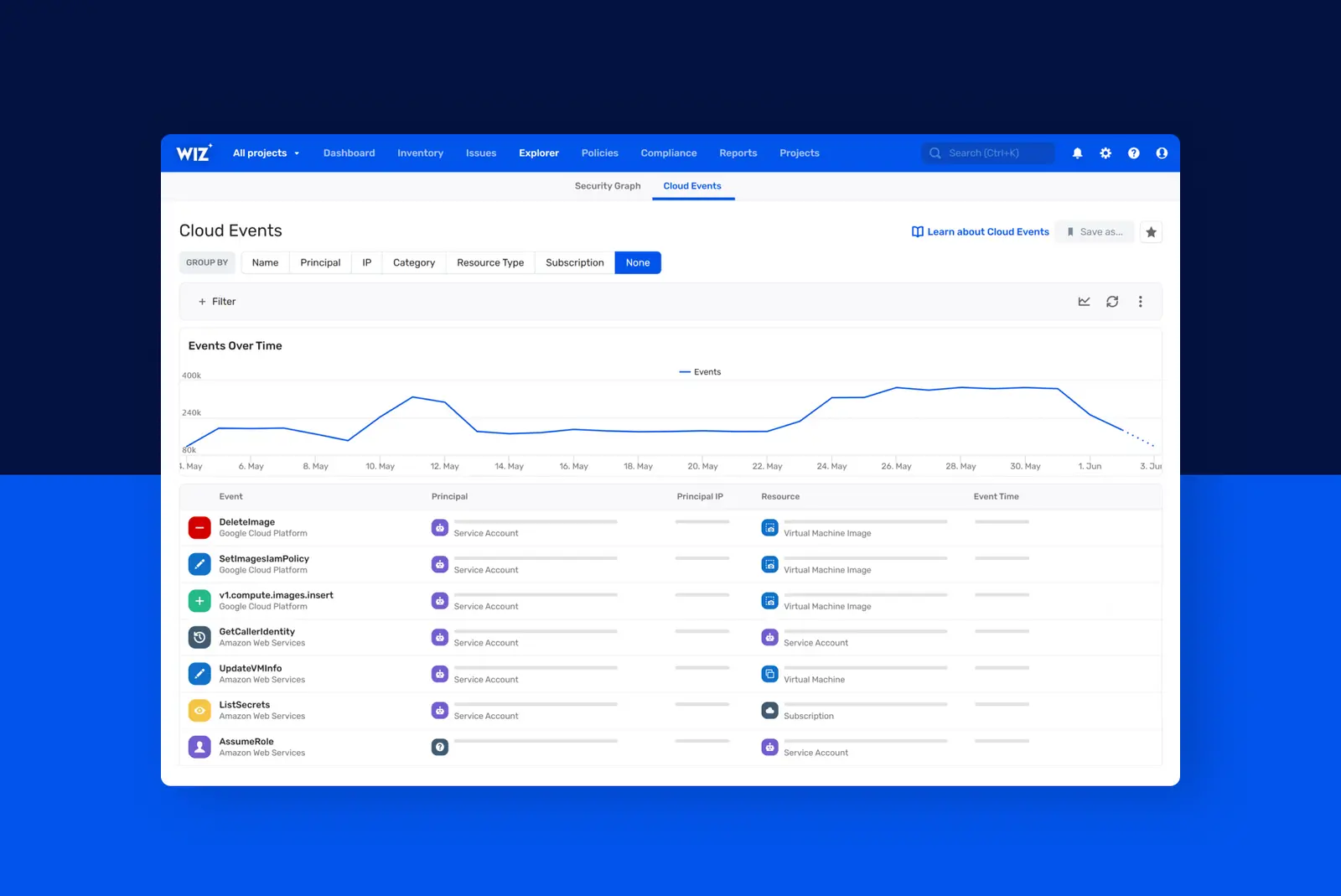
It is particularly strong for multi-cloud enterprises that need unified risk detection across AWS, Azure, GCP, and Kubernetes clusters. Wiz is also known for its ability to consolidate risks into a single view, making it easier for enterprises to prioritize remediation.
Wiz key features:
Agentless scanning across public cloud and Kubernetes workloads.
Unified risk assessment that covers misconfigurations, secrets, vulnerabilities, and network exposures.
Infrastructure as code (IAC) scanning to detect issues before deployment.
Real-time threat detection with alerts for high-risk misconfigurations.
Automated compliance and governance reporting.
Wiz pricing:
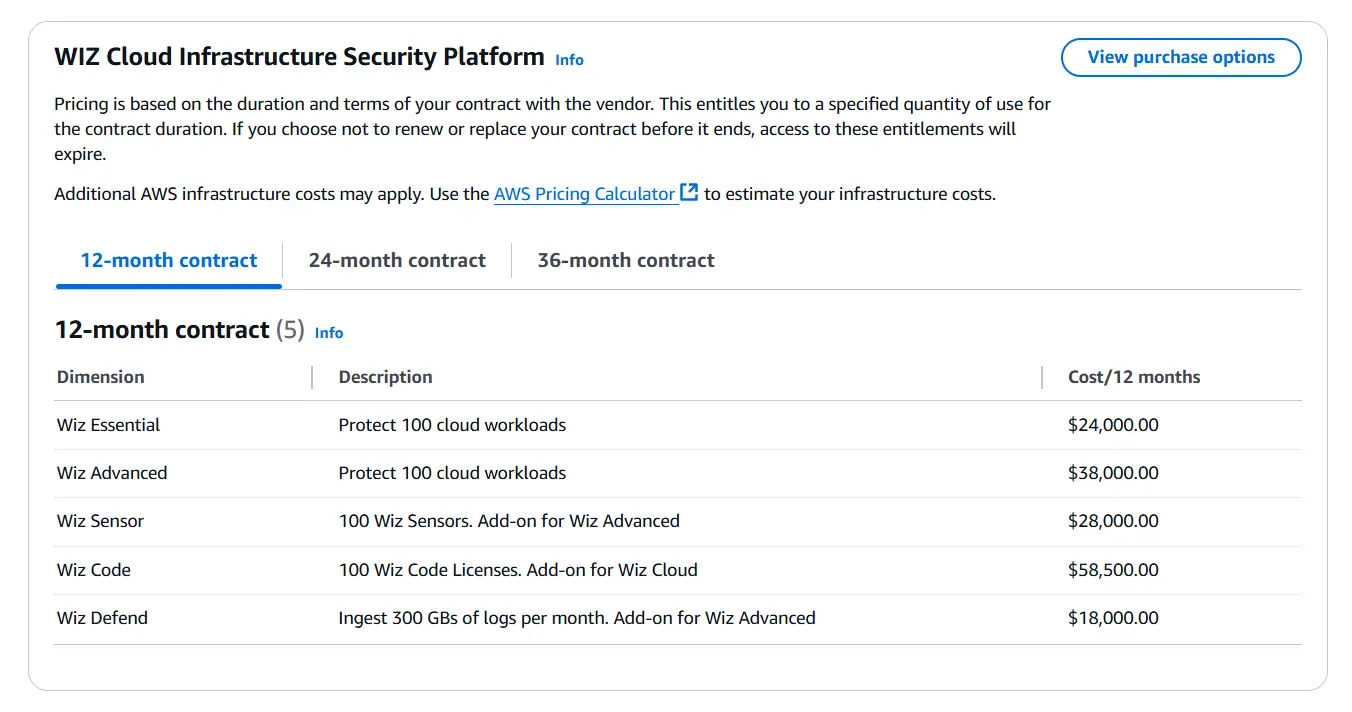
Source: AWS Marketplace
Essential: $24,000/year for 100 workloads.
Advanced: $38,000/year for 100 workloads.
Add-ons available, such as wiz sensor and wiz code, at custom pricing.
Wiz ratings & reviews

Source: G2
Customers consistently highlight wiz’s ease of deployment and its powerful agentless design. Compared to Tenable, wiz is often viewed as more user-friendly and faster to scale across global enterprises. Many organizations also note that the consolidated dashboard reduces the time security teams spend correlating issues across multiple tools.
Aqua Security
Aqua Security takes a kubernetes-native approach to cloud security, making it especially popular among enterprises that rely heavily on containers and microservices. Unlike Tenable Cloud Security, Aqua provides deeper insights into Kubernetes posture and runtime workload protection.
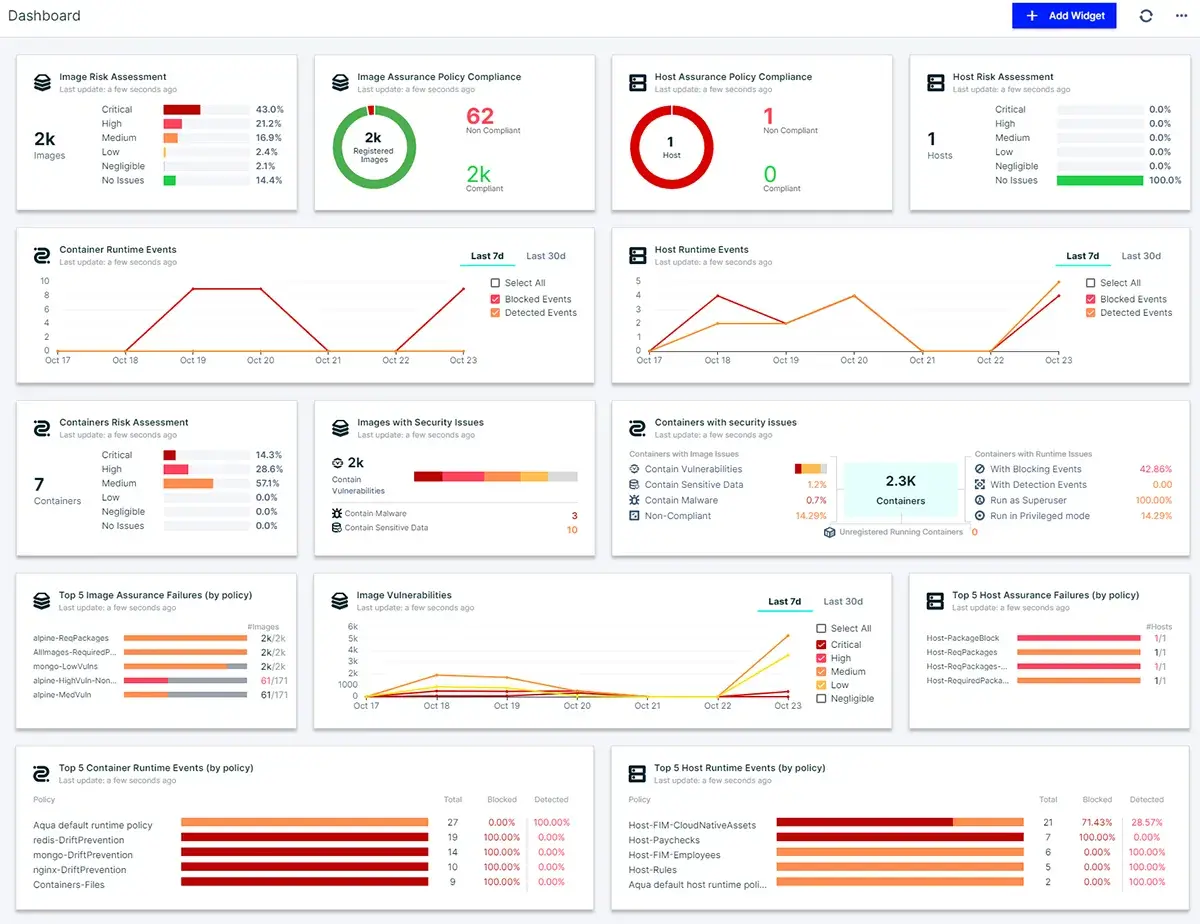
Aqua leverages trivy, a popular open-source vulnerability scanner, to deliver both pre-deployment and runtime security. This makes it a strong choice for DevSecOps teams that want a seamless bridge between development pipelines and production environments.
Aqua Security key features:
End-to-end container lifecycle security, from image scanning to runtime monitoring.
Kubernetes security posture management (KSPM) to detect misconfigurations.
Trivy integration for vulnerability scanning of container images.
Runtime workload protection that includes anomaly detection and policy enforcement.
Software supply chain protection with guardrails against tampered or unverified images.
Aqua Security pricing:
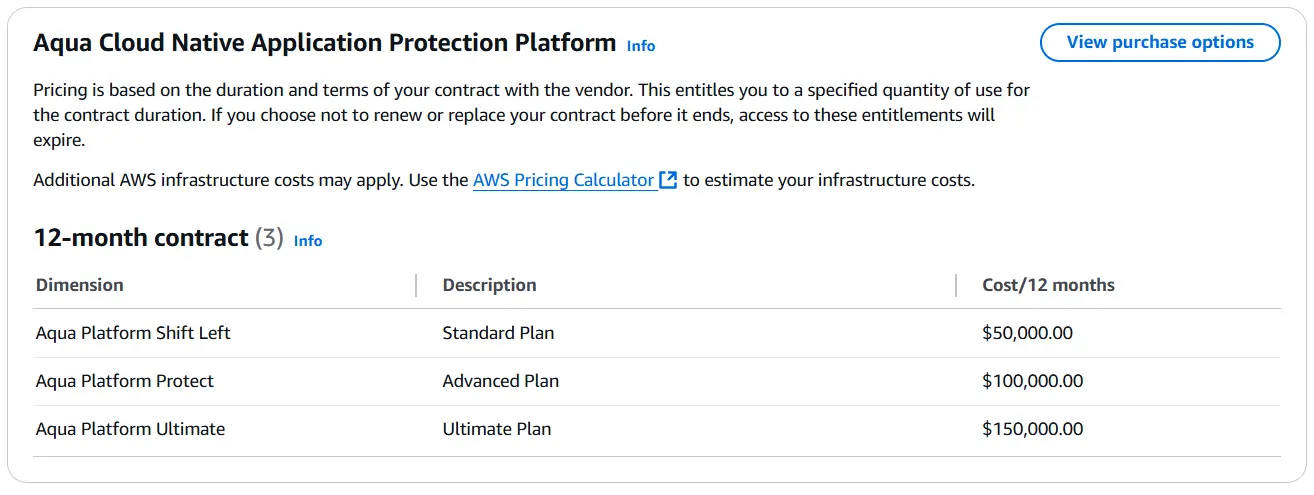
Source: AWS Marketplace
Shift left: $50,000/year.
Protect: $100,000/year.
Ultimate: $150,000/year with enterprise-grade capabilities.
Aqua Security ratings & reviews
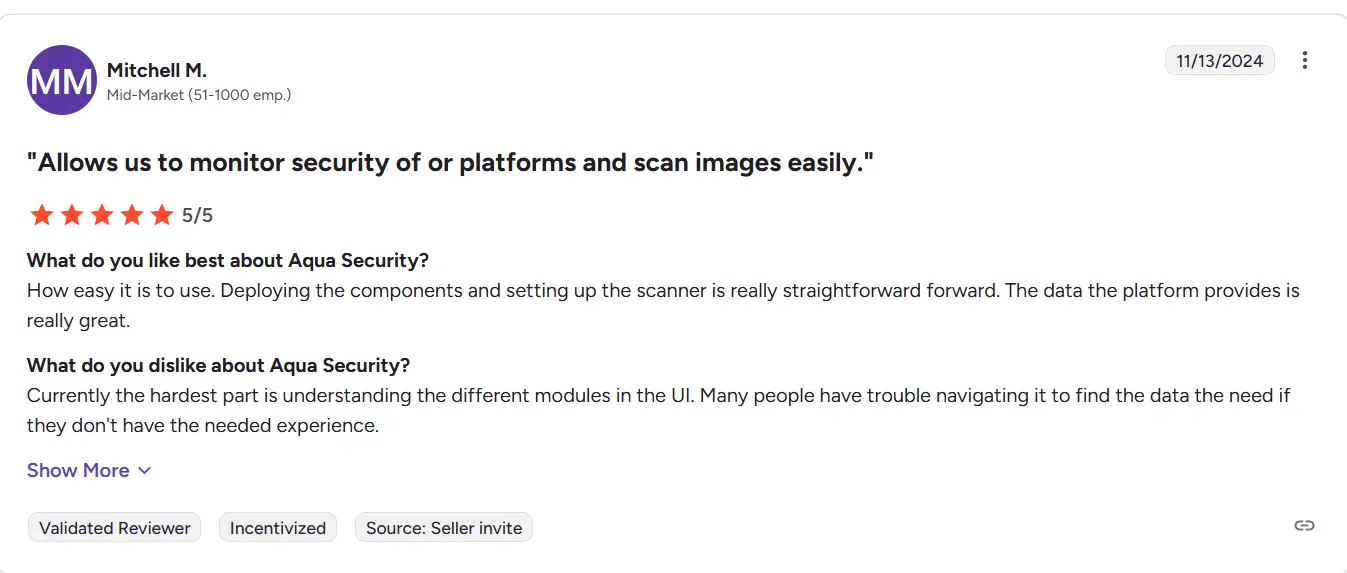
Source: G2
Enterprises adopting Aqua praise its kubernetes-native approach and its ability to secure workloads across the full lifecycle. Compared to Tenable, Aqua is often noted for its stronger container and runtime protection. Users also value the integration of Trivy, which provides accurate vulnerability data without requiring additional tools.
Vulnerability management (Tenable VM alternatives)
Introduction to Tenable Nessus & Tenable VM
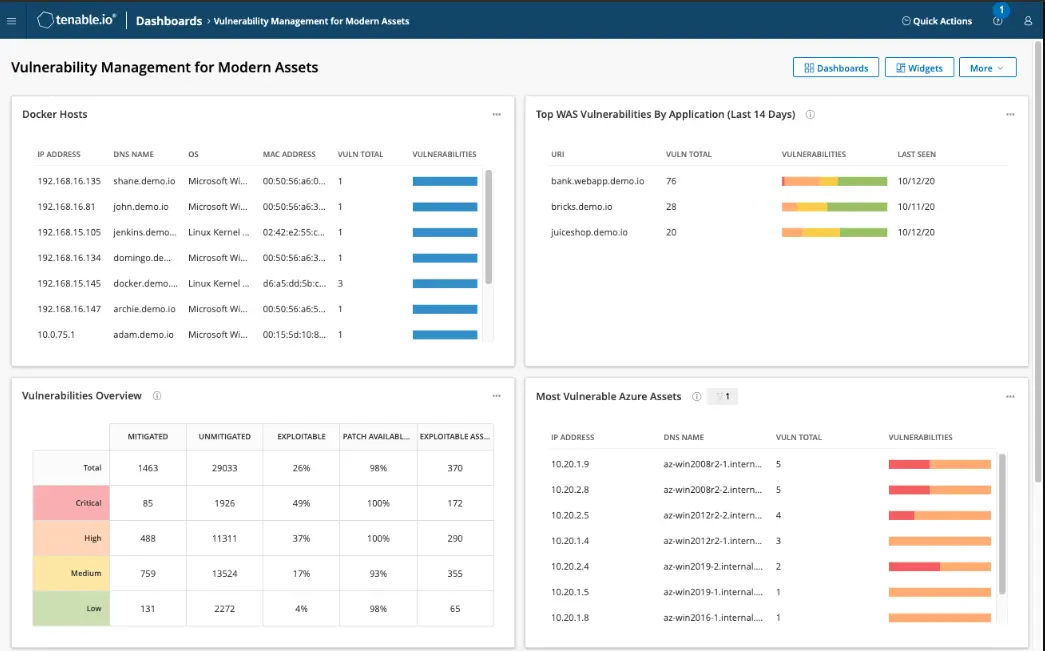
Tenable Nessus and Tenable Vulnerability Management (VM) have long been considered industry standards in vulnerability scanning. They provide comprehensive coverage across operating systems, applications, and network devices. The platforms also support continuous monitoring and leverage vulnerability priority rating (VPR) scoring to help organizations prioritize remediation.
Strengths of Tenable VM include:
Comprehensive coverage of vulnerabilities across a wide range of assets.
Continuous monitoring that ensures newly discovered threats are quickly identified.
Risk-based prioritization through VPR scoring, which assigns context to vulnerabilities.
Challenges with Tenable VM include:
High operational costs, which can make it less appealing to small and mid-sized businesses.
Complexity in deployment, especially in large enterprise or hybrid environments.
A need for highly skilled teams to optimize scans and interpret results effectively.
As a result of these limitations, many organizations are evaluating alternatives that offer easier deployment, lower costs, or improved integrations with existing workflows.
SecOps Solution
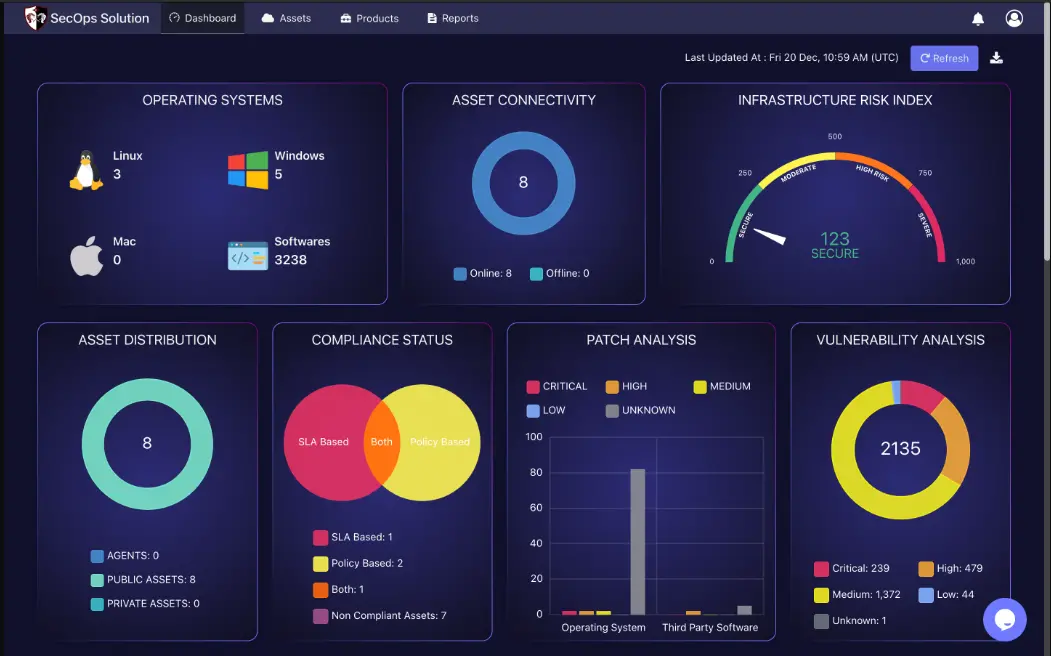
SecOps solution is designed as a lightweight and cost-effective alternative to Tenable VM. Unlike Tenable, which requires more extensive configuration, SecOps focuses on simplicity and affordability, making it a strong fit for small and medium-sized businesses.
It provides both vulnerability detection and automated patch management, which reduces the operational burden on IT teams. SecOps also supports compliance reporting, allowing organizations to demonstrate adherence to standards without the complexity of traditional enterprise-grade tools.
SecOps solution key features:
Agentless scanning for endpoints and applications.
Automated patch management that streamlines remediation.
Multi-tenant support, ideal for managed service providers.
Compliance reporting with templates for industry standards.
Risk-based prioritization for actionable vulnerability management.
SecOps solution pricing:
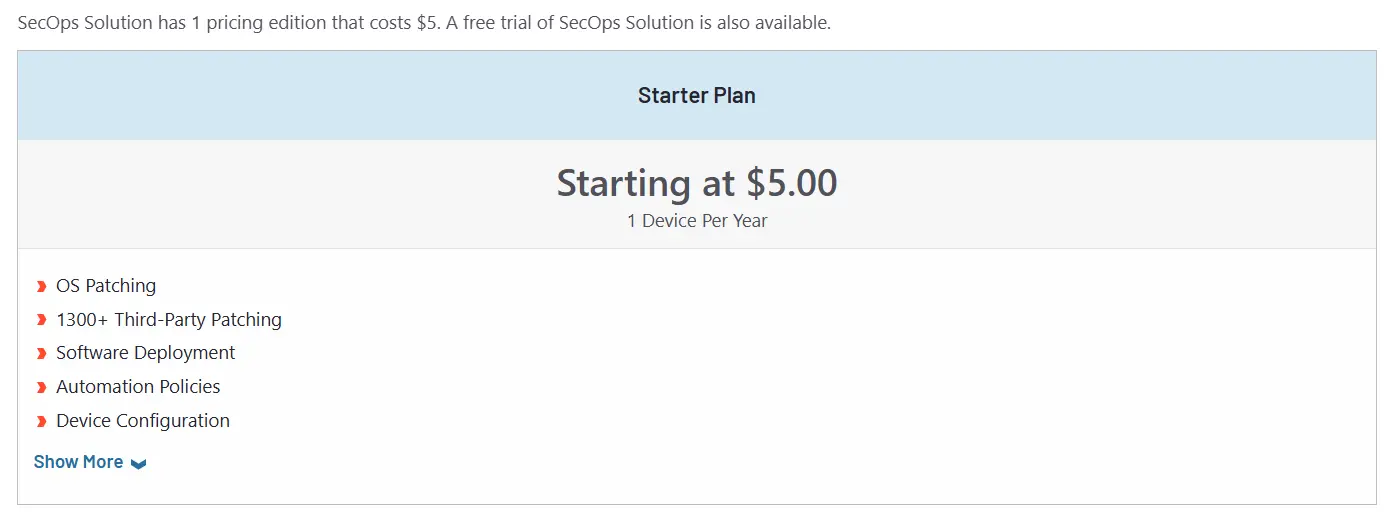
Source: G2
Starter: $5/device/year.
Professional: $1,000/year enterprise license.
Free trial is available for testing.
SecOps Solution ratings & reviews
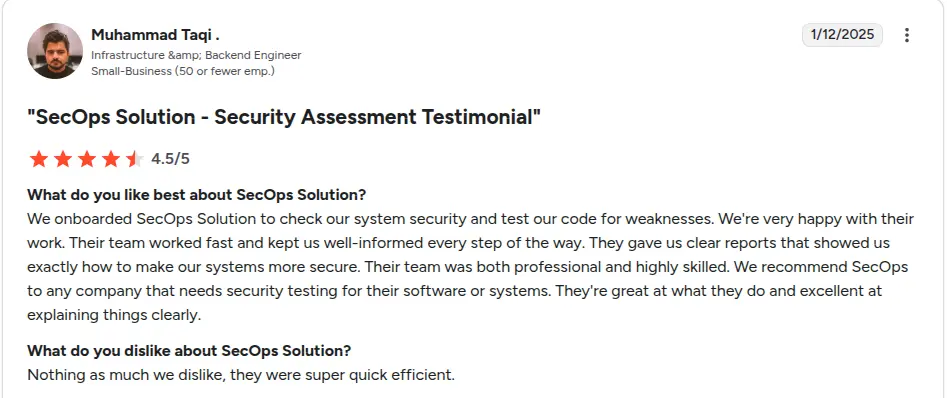
Source: G2
Customers appreciate the affordability and simplicity of SecOps compared to Tenable. Reviews often highlight its straightforward deployment process and the value of combining vulnerability management with patch automation. While it may not have the depth of analytics offered by larger enterprise solutions, it is seen as an excellent fit for small organizations and managed service providers.
Rapid7 InsightVM
Source: Rapid7 InsightVM is one of the strongest competitors to Tenable VM. It delivers continuous asset discovery, real-time dashboards, and remediation workflows that are directly integrated with IT ticketing systems.
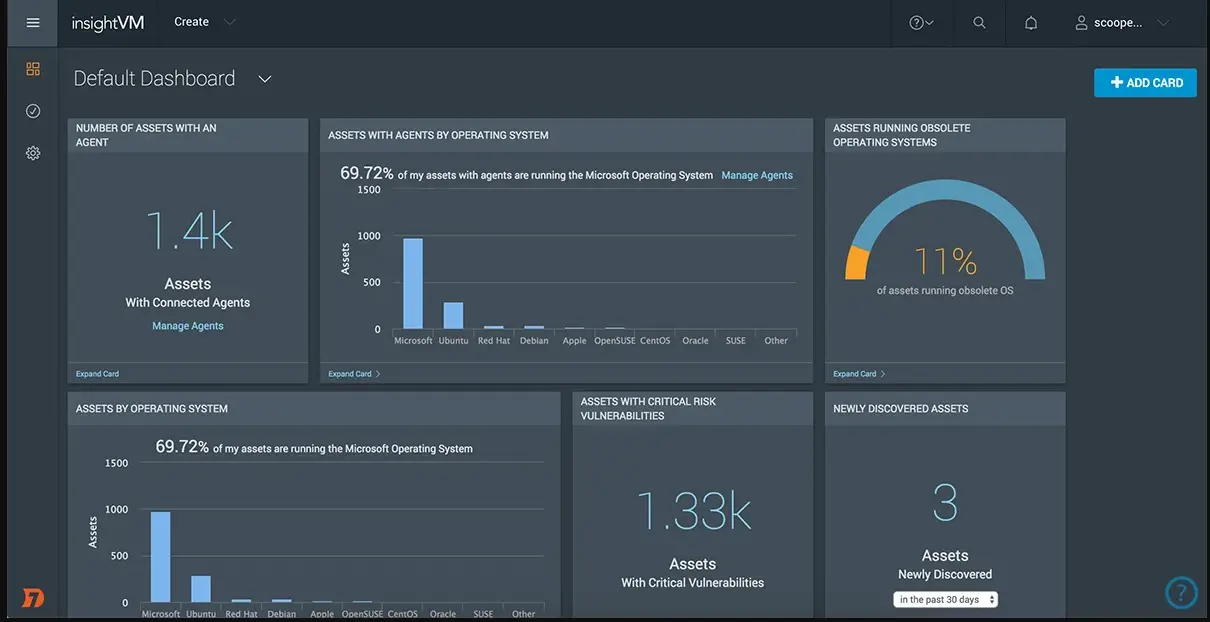
Unlike SecOps, which is targeted at smaller organizations, InsightVM is designed for enterprises with complex hybrid environments. Its lightweight insight agent enables continuous monitoring without the overhead of frequent full scans, making it highly efficient in large networks.
Rapid7 InsightVM key features:
Continuous discovery of assets across cloud, on-premises, and hybrid environments.
Active risk score on a 1–1000 scale for vulnerability prioritization.
Real-time dashboards that provide visibility into security posture.
Integration with IT service management tools for remediation workflows.
Lightweight insight agent for efficient endpoint monitoring.
Rapid7 InsightVM pricing:
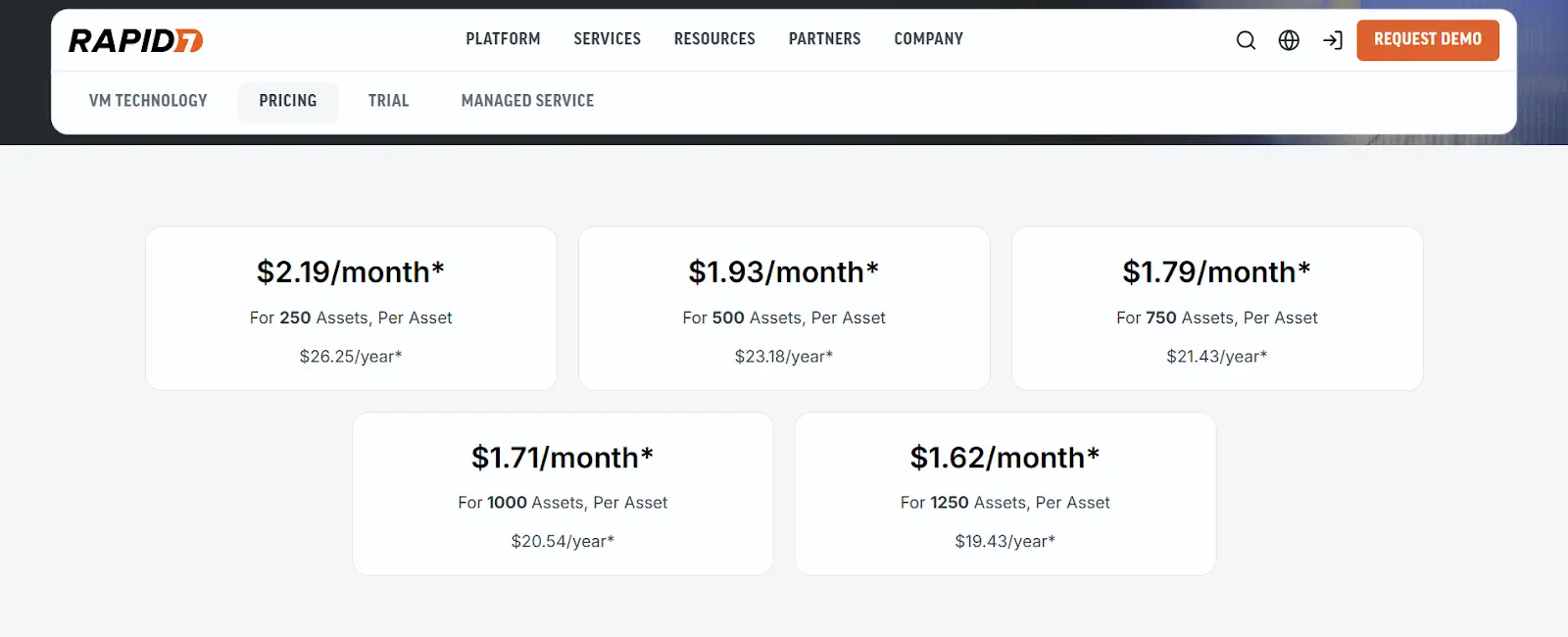
Source: Rapid7
$1.93/asset/month with a minimum of 500 assets.
Enterprise pricing scales based on volume and environment size.
Rapid7 InsightVM ratings & reviews
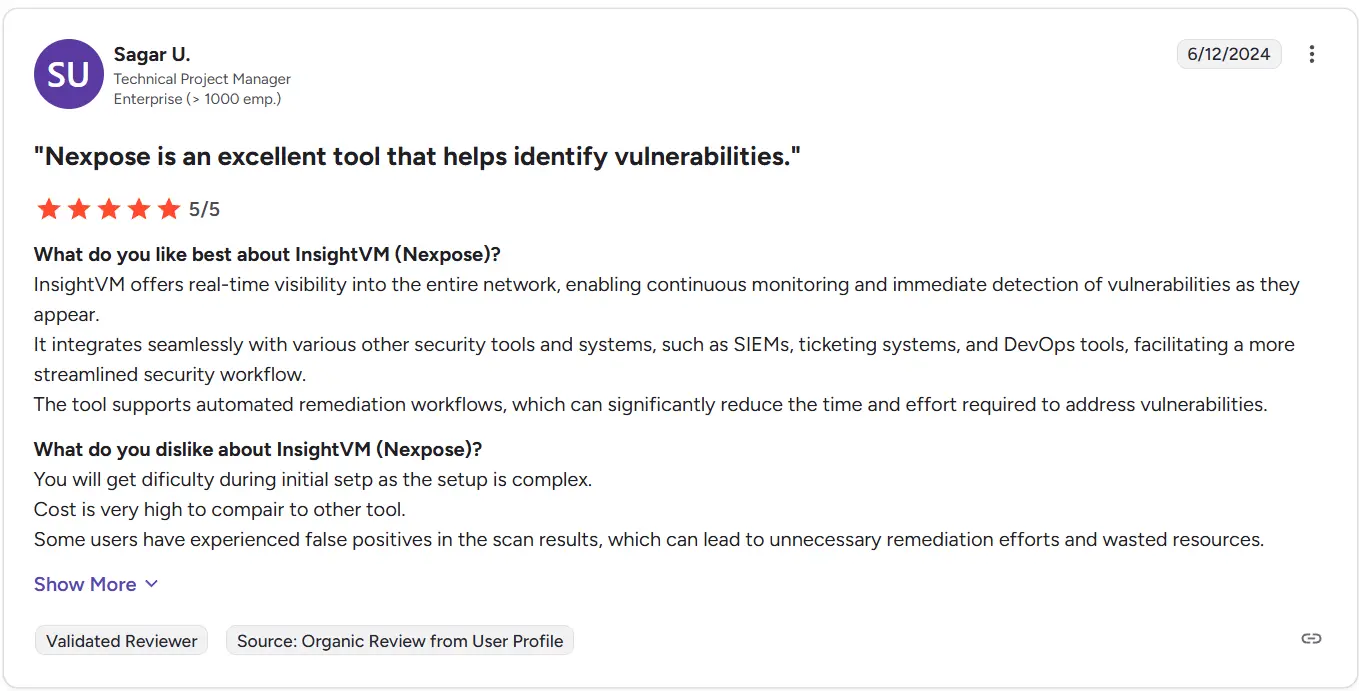
Source: G2
Enterprises adopting InsightVM often praise its scalability and integration capabilities. Reviews highlight the usefulness of the active risk score, which goes beyond static severity ratings to help prioritize remediation. Compared to Tenable, InsightVM is often described as more adaptable in large hybrid environments and easier to integrate into IT operations.
Key factors to consider when choosing the right Tenable alternative
Selecting the right Tenable alternative depends on more than just price comparisons. Every organization has unique security needs, IT environments, and compliance requirements. The decision should be guided by a careful evaluation of technical capabilities, ease of integration, scalability, and long-term support. Below are the main factors to weigh before making a choice.
Specific use case
The first question to ask is: What is the primary security challenge you want to solve? Tenable offers broad coverage, but specialized tools often deliver more value in targeted areas.
Web apps and APIs: Beagle Security and Burp Suite are better suited for modern applications, offering strong developer support and penetration testing depth.
Cloud-native and multi-cloud: Wiz and Aqua Security stand out for their cloud-native protections and deep integration with Kubernetes and cloud infrastructure.
Traditional IT and hybrid: Rapid7 InsightVM and SecOps solution provide strong vulnerability management for both on-premises and cloud environments.
Integration capabilities
Integration with existing workflows and tools is critical for security teams. If a solution does not integrate well with CI/CD pipelines, ITSM platforms, or monitoring tools, it could create friction instead of efficiency.
Beagle Security and Aqua Security: Offer strong CI/CD integrations that allow security testing earlier in the development cycle.
Rapid7 solutions: Work seamlessly within the Rapid7 ecosystem, making them attractive for organizations already invested in that platform.
Wiz: Provides wide API integrations across major cloud providers and third-party tools, enabling organizations to unify risk management.
Scalability considerations
A security solution must scale as your organization grows. What works for a startup today may not be effective for a global enterprise tomorrow.
Small and mid-sized businesses: Secops solution offers simplicity and low cost, which makes it easy for SMBs to deploy and maintain.
Enterprises: Wiz, Aqua Security, and Rapid7 InsightVM provide scalability for organizations managing thousands of assets across hybrid or multi-cloud environments.
Ease of use
Usability can make or break the effectiveness of a security solution. If the platform is too complex, teams may not fully utilize it.
Beagle security: Known for its straightforward setup and developer-friendly reports.
Wiz: Recognized for its fast, agentless deployment and user-friendly dashboards.
InsightVM: Offers powerful features but requires some tuning to optimize for very large-scale environments.
Reports and analytics
Clear, actionable reports are essential for driving remediation and meeting compliance requirements.
Beagle security: Provides contextual developer reports that make it easier to fix vulnerabilities at the code level.
Wiz: Delivers single-pane-of-glass dashboards that combine vulnerabilities, misconfigurations, and compliance data.
InsightVM: Offers real-time dashboards and detailed compliance reports, making it suitable for enterprises with strict regulatory needs.
Customer support
The level of support and community engagement can influence adoption and long-term satisfaction.
Enterprise-grade support: Rapid7, Aqua Security, and wiz provide 24/7 enterprise-level support with dedicated account managers.
Community-driven support: Burp Suite has a large, active community and extensive resources, though enterprise support is more limited.
Budget constraints
Cost remains one of the most decisive factors when evaluating alternatives. While some tools prioritize enterprise-grade depth, others aim to make security accessible to smaller teams.
Lowest-cost: SecOps Solution ($5/device/year) is the most affordable vulnerability management tool, ideal for SMBs and budget-conscious organizations.
Cost-effective mid-tier options: Beagle Security ($119/month) provides affordable AI-powered DAST for modern web apps and APIs. Burp Suite ($475/year) is another reasonably priced choice, particularly for security professionals and penetration testers who prefer manual testing depth.
Premium: Aqua Security ($150,000/year) serves large enterprises that require advanced Kubernetes-native runtime protection and full lifecycle container security.
Deployment options (cloud, on-prem, hybrid)
Different organizations prefer different deployment models depending on regulatory requirements, infrastructure, and operational strategy.
Cloud SaaS: Wiz and Beagle Security offer fully cloud-native deployments, ensuring ease of setup and lower maintenance.
On-premises and hybrid: Rapid7 InsightVM and Aqua Security offer flexible deployment models, which are especially useful for industries with compliance restrictions.
FAQs: Tenable alternatives and competitors
Q1. Why should organizations consider Tenable alternatives?
Because of cost, complexity, and the need for specialized cloud-native or developer-focused solutions.
Q2. What is the best Tenable.io alternative for web application security?
Beagle Security for AI-powered automated testing, or Burp Suite for manual testing.
Q3. Which CNAPP is the best Tenable Cloud Security alternative in 2025?
Wiz for agentless multi-cloud visibility, Aqua Security for Kubernetes-heavy environments.
Q4. Which Tenable alternative provides the fastest deployment?
Wiz is known for agentless cloud deployment, while Beagle Security offers quick setup for web apps and APIs without complex configurations.
Q5. Do Tenable alternatives integrate with DevSecOps pipelines? Yes, Beagle Security and Aqua Security integrate directly into CI/CD workflows.
Final thoughts: Choosing the best Tenable alternative in 2025
The security landscape in 2025 has evolved, and organizations now have more options than ever when considering alternatives to Tenable. Each solution brings something valuable depending on the specific challenge at hand.
For application security (DAST): Beagle Security provides strong coverage for modern web applications and APIs, with a developer-friendly approach that reduces noise and helps teams act quickly on real risks. For teams that prefer in-depth manual testing, Burp Suite remains a trusted tool, while InsightAppSec may appeal to enterprises already using Rapid7.
For cloud security (CNAPP): Wiz offers unmatched simplicity through agentless scanning across AWS, Azure, and GCP, while Aqua Security specializes in Kubernetes-native security and runtime protection for container-heavy setups.
For vulnerability management (VM): Rapid7 InsightVM delivers advanced dashboards and risk-based scoring for large enterprises, whereas SecOps Solution provides a lightweight and budget-friendly option for smaller organizations.
These tools show that there are better alternatives to each offering from Tenable. The right choice depends on whether your priority is web application security, cloud posture management, or vulnerability management at scale.
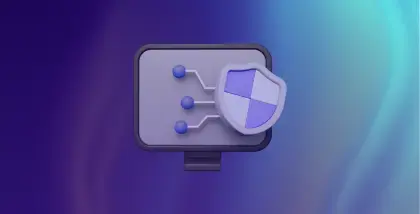


![Acunetix vs Nessus: Which is right for you? [2026] Acunetix vs Nessus: Which is right for you? [2026]](/blog/images/acunetix-vs-nessus-which-is-right-for-you-2026-cover.webp)
![OpenVAS vs Nessus: Which is the best choice for you? [2025] OpenVAS vs Nessus: Which is the best choice for you? [2025]](/blog/images/openvas-vs-nessus-which-is-the-best-choice-for-you-2025-cover.webp)


![Top enterprise application security tools [2026] Top enterprise application security tools [2026]](/blog/images/blog-banner-four-cover.webp)
![Top vendor application security testing tools [2026] Top vendor application security testing tools [2026]](/blog/images/blog-banner-six-cover.webp)
![Best API security tool for developers [2026] Best API security tool for developers [2026]](/blog/images/blog-banner-five-cover.webp)

![Top Bright Security alternatives [2026] Top Bright Security alternatives [2026]](/blog/images/blog-banner-one-cover.webp)